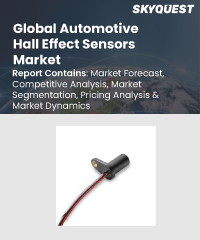
Product ID: SQMIG45K2068
Report ID:
SQMIG45K2068 |
Region:
Global |
Published Date: March, 2024
Pages:
197
|
Tables:
61 |
Figures:
75
We respect your privacy rights and safeguard your personal information. We prevent the disclosure of personal information to third parties.

Product ID: SQMIG45K2068